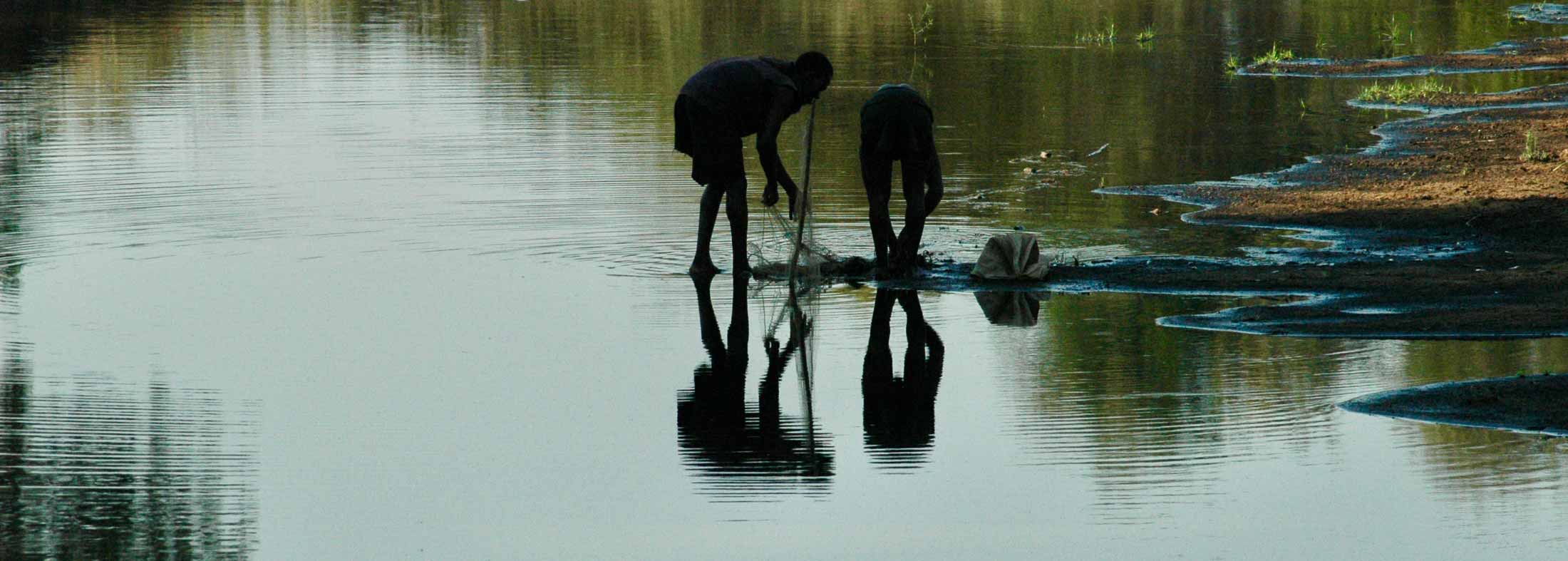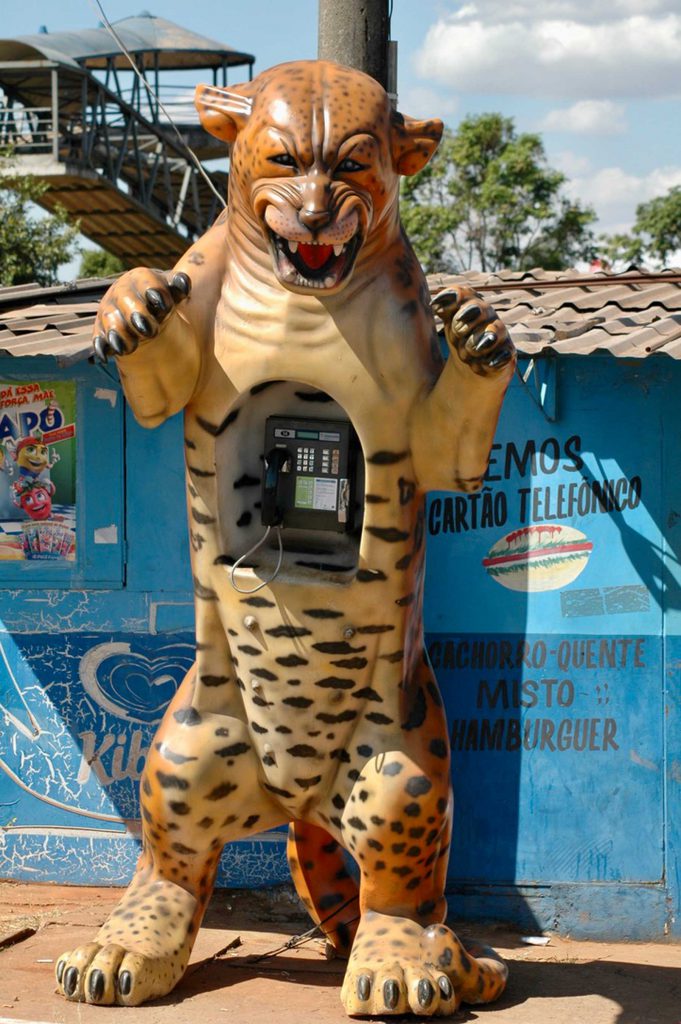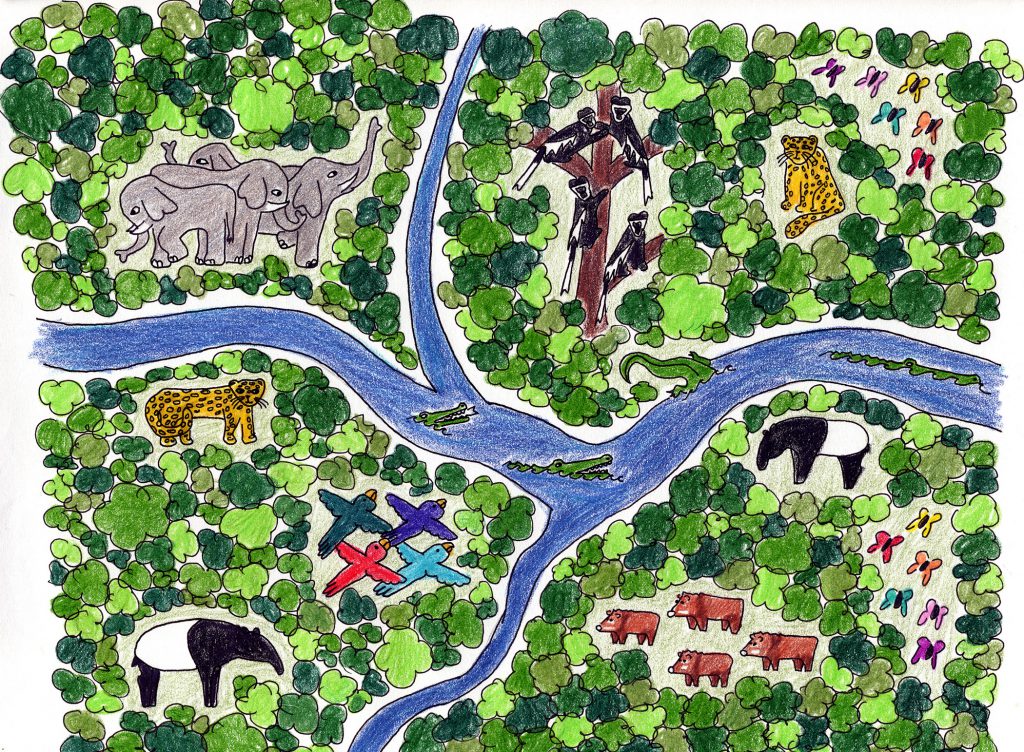
Conservation work generates a great deal of information about what has worked, what has not worked, and why. The field has a poor record of capturing and learning from this information which results in less effective conservation. Documenting and synthesizing provides the opportunity to improve the practice of conservation. I have worked at the interface between academia and conservation practice for my entire career, focusing on learning and synthesizing to create a more robust practice.
Examples of my work include:
- Publishing a book “Strange Natures. Conservation in the era of synthetic biology” with W.M. Adams, published 2021 by Yale University Press.
- Working across a multi-million dollar Nature Conservancy Program called Parks in Peril to create a process of pairing academics and practitioners to document lessons learned from a set of 31 protected areas from Mexico to Paraguay (see Parks in Peril in “Resources”)
- Developing and publishing a biennial series that documents the science and art of conservation: State of the Wild: A Global Portrait of Wildlife, Wildlands and Oceans in collaboration with Island Press (see “Resources”)
- Creating a set of publishing vehicles to summarize state-of-the art thinking on topics of importance for conservation (Working Paper series covering topics such as livelihoods and protected areas and cross-scale governance of species; a regularly science newsletter published within WCS; see “Resources”)
- Leading and being part of Program evaluations (NGO country programs: Wildlife Conservation Society: Lao PDF and Russia; species conservation programs: National Zoo, US: Golden lion tamarin)

As the Principal at Archipelago I have:
- Working with Brent Mitchell, IUCN and Anglo American to organize and conduct a learning and sharing process with 10 companies that culminated in a workshop “Engaging industry in conserving nature: Case studies of biodiversity actions on companies’ non-operational lands and seas.” An IUCN publication is expected in mid 2023.
- Reviewer for the European Union’s biodiverse+ grants program, 2022.
- Worked with the Global Environment Facility senior staff to help research and develop a Post-COVID Strategy and subsequently work with a group of 19 coauthors representing 18 organizations to write a paper “Healthy Planet Healthy People” published in the journal Conservation Letters (2020-2021)
- Organized the IUCN synthetic biology-biodiversity conservation initiative, assembled and am led a Technical Subgroup to write a 200 page assessment published in May 2019: “Genetic Frontiers for Conservation. An Assessment of Synthetic Biology and Biodiversity Conservation” (Editors: Redford, K.H., T.M. Brooks, N.B.W. Macfarlane and J.S. Adams)
- Working for the Market Institute of World Wildlife Fund-US on a series of projects related to illegality in commodity production, emerging trends in agriculture, arcs of habitat loss and innovations in agriculture (on-going).
- Written a review for the Scientific Technical Advisory Panel of the Global Environment Facility to help develop guidance for the GEF on how best to address the issue of “novel entities” to ensure that these possible pressures and drivers of environmental degradation (and potential solutions) are well understood and any future interventions are supported by the latest science. For the purposes of this review “novel entities” are defined as: 1) persistent organic pollutants; 2) nanotechnology; and 3) synthetic biology (2017)
- Formed and led for the U.S. National Park Service an invited “Invasive Animals Independent Science Panel” to evaluate the extent of the problem of invasive alien animal species, assess management needs, review best practices and assess potential organizational models that could serve as a service-wide organizational framework for the National Park Service (on-going)
- Analyzed and written a report on illegality in the commodity chains of eight global foods for World Wildlife Fund-US (2016)
- Researched and wrote accounts for 18 priority emerging trends in global agriculture and food production for World Wildlife Fund-US (2016)
- Co-taught (with Professors Malcolm Hunter and Aram Calhoun) a graduate course at University of Maine: Recent Innovations in Conservation (2016)
- Been a team member of a review of the Lincoln Park Zoo (Chicago) Conservation and Science Program (2016)
- Been a member of a team led by Michael Wells that completed a mid-term evaluation of the MacArthur Foundation’s Conservation and Sustainable Development Program (2015).
- Done strategic planning for the JRS Biodiversity Foundation (2015).
- Written a position paper for the Moore Foundation for its Amazon-Andes Initiative (2015).
- Led an evaluation of the Conservation Measures Partnership and the Conservation Coaches Network and their ten years of work on bringing adaptive management to conservation
- Served as the Science lead on a review of the $400 million gift made by the Gordon and Betty Moore Foundation to Conservation International (2014).
- Co-initiated (with Equilibrium Research) and successfully secured funding (from the Linden Trust for Conservation) for a global examination of the practice of private protected areas that resulted in an IUCN Technical Publication and a series of workshops at the World Parks Congress (2013-14).
- Led an evaluation of the Wildlife Conservation Society’s Malaysia Program
- Led authorship of a paper looking at the best practices combining great ape conservation and poverty alleviation
- Authored a review of the relationship between scientific societies and their scientific journals
- Coordinated a major global meeting on synthetic biology and conservation and leading the writing of several papers on the topic
- Lead authorship of a global synthesis on the mainstreaming of biodiversity

